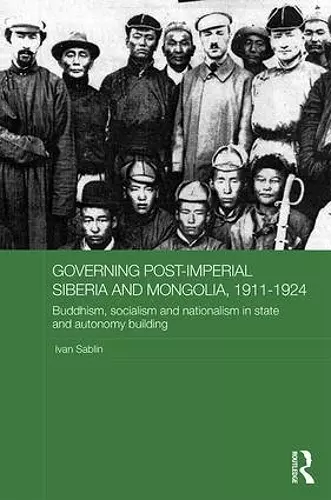Governing Post-Imperial Siberia and Mongolia, 1911–1924
Buddhism, Socialism and Nationalism in State and Autonomy Building
Format:Hardback
Publisher:Taylor & Francis Ltd
Published:4th Feb '16
Currently unavailable, and unfortunately no date known when it will be back
This hardback is available in another edition too:
- Paperback£49.99(9781138099838)

The governance arrangements put in place for Siberia and Mongolia after the collapse of the Qing and Russian Empires were highly unusual, experimental and extremely interesting. The Buryat-Mongol Autonomous Socialist Soviet Republic established within the Soviet Union in 1923 and the independent Mongolian People’s Republic established a year later were supposed to represent a new model of transnational, post-national governance, incorporating religious and ethno-national independence, under the leadership of the coming global political party, the Communist International. The model, designed to be suitable for a socialist, decolonised Asia, and for a highly diverse population in a strategic border region, was intended to be globally applicable. This book, based on extensive original research, charts the development of these unusual governance arrangements, discusses how the ideologies of nationalism, socialism and Buddhism were borrowed from, and highlights the relevance of the subject for the present day world, where multiculturality, interconnectedness and interdependency become ever more complicated.
"The period from 1911 to 1924 in eastern Siberia is unique because of the explosion there of so many state-building and autonomy projects. Sablin’s study provides not only a guide to these projects, but analysis of the ideas and theories behind them. His research demonstrates how complicated governance can be in a transcultural space. The book offers 15 useful maps that outline the geography, economy, ethnicity, and religion of the region."
Melissa Chakars, St. Joseph’s University, Slavic Review
ISBN: 9781138952201
Dimensions: unknown
Weight: 453g
234 pages